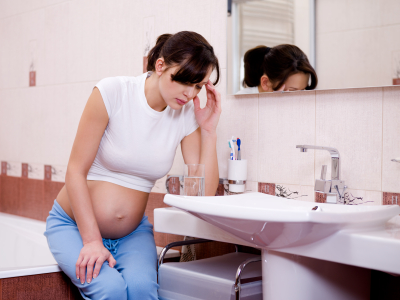Pregnancy Triggers OCD in Some Women

Pregnancy may increase OCD or even trigger it for the first time in some women, according to a recent Yale University School of Medicine study.
Dr. Ariadna Forray found that 32 percent of women in the study had their first symptoms of Obsessive Compulsive Disorder during pregnancy or soon afterward. Among the women who developed OCD during pregnancy, 67 percent reported an obsessive concern with germs or contamination, compared with only 36 percent of women whose OCD was not pregnancy-related in the study of 128 women.
Among women with pre-existing OCD, 32 percent reported increased symptoms during pregnancy, while 22 percent reported a reduction in symptoms. The increase was most profound among women who also reported more symptoms of OCD during the premenstrual period. Researchers conclude that a sub-set of women OCD patients have a form of the condition that is hormone-related. These women and their doctors should be aware that pregnancy might exacerbate their anxiety disorder.
In OCD, the patient has recurring anxiety and feels compelled to engage in routine or ritualistic behavior that dispels those fears. A patient who fears germs may feel the need to sanitize every doorknob in the house multiple times per day, or to wash her hands repeatedly. More than 2 million adults in the U.S. suffer from OCD, and the first symptoms often appear in childhood or during the teen years.
The findings do not indicate that pregnancy will exacerbate OCD in every woman, but only that it makes some women more susceptible. Dr. Forray points out that some women may have a different sensitivity to hormones produced by the reproductive system. For them, pregnancy, ovulation and other reproductive events trigger the onset of OCD or exacerbate the symptoms of existing OCD. Such changes may result from genetic or environmental factors, or a combination of the two.
Dr. Forray points out that many women have increased levels of fear and anxiety during pregnancy, without developing OCD. If fears for the baby or repetitive behaviors begin to interfere with everyday life, the expectant mother should consult her doctor. For both hormone-related OCD and types that are not hormone-regulated, the most effective treatment is a combination of cognitive-behavioral therapy, anti-anxiety medications and antidepressants.
By Joni Holderman, [email protected], contributing reporter for Mental Health News.